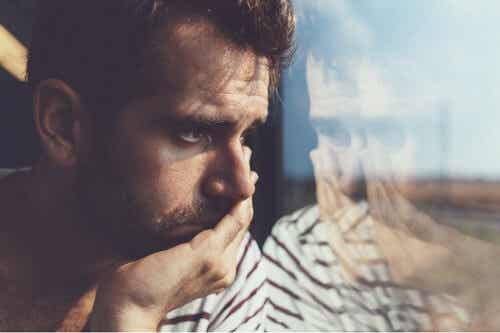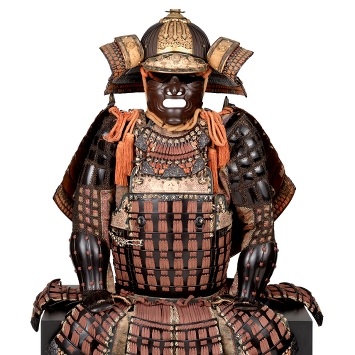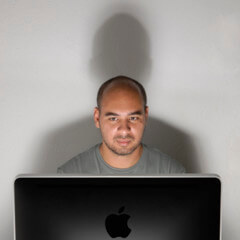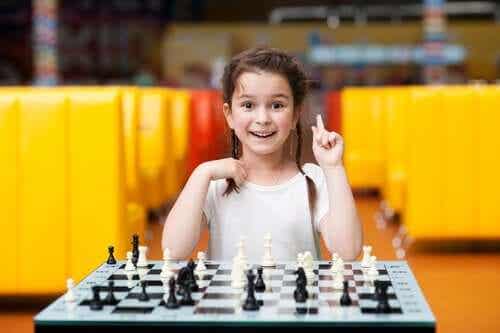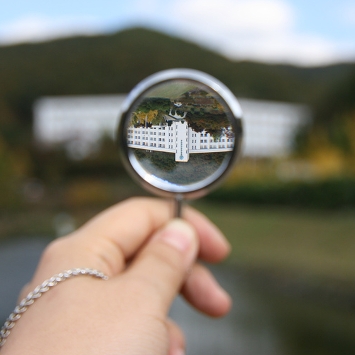The road to Eden is paved with good attention. This means that in order to feel good and connected to the context around us, we must learn to focus our attention on what is really important.

Last update: February 23, 2021
Many people wonder when they stopped enjoying the things they used to appreciate. We wonder why we have become mere spectators of our own suffering or instability. The answer to these questions is that we are often inclined to pay attention to what is not really important.
Choosing what we pay attention to is the foundation on which we fortify our life. Paradoxically, it is also one of the biggest points that are forgotten. It is as if we spend half of our life on autopilot. Our surroundings require a lot of attention, but we will see little if we don't know how to address it correctly.
It is useless to spend the day remembering what mortifies us, because then we will only divert our attention to an idea or situation that is not present. There is little point in focusing on what we believe will happen, because even if it does, it will never happen as we have imagined. So, wouldn't it be better to pay attention to the present and on which we can act? Wouldn't it be healthier to use our resources on something that concerns us and not waste them on guesswork or ideas?
Our brain sends 50000 automatic and repetitive thoughts per day. Making sure that these messages do not occupy our attention is essential in order not to influence our behavior. "The brain is always at work even if we are sitting doing nothing. He can be trained to act to our advantage ", confirmed theoretical physicist Jyri Kuusela, who works for the European Space Agency (ESA) and promotes the adoption of neurofeedback.
According to Elsa Punset, guru of social intelligence: “we have to train our brain in a positive way”. To reprogram our brain we must start working on attention, or rather, work on good attention.
"The attention span of man is very limited, so we have to work on it and constantly stimulate it."
-Elsa Punset-
We do not have to look at the past with anger or at the future with fear, but around us with attention
Doing one thing at a time means being present in what you do, giving it all your attention. In doing so, our attention is concentrated where they are really useful and profitable for our body and our mind.
The opposite is running on autopilot, not being aware of what we are doing while doing it. Disconnecting from the present by carrying out routine activities while our mind wanders to another place and time.
Several studies have shown that the benefits of meditation and mindfulness are numerous. Train your mind to stay in the present moment without changing anything, with an attitude of openness and acceptance of reality as it is, it causes significant structural and functional changes in the brain in areas associated with well-being and happiness.
Spontaneous attention is the only one that exists until education and artificial means intervene. There is nothing else in most animals and children. But, strong or weak, it is always caused by affective states. This rule is absolute, without exception.
Learn to pay attention to what's best for us
If we want people to pay attention to what we say, we shouldn't raise our voice, but lower it - that's what really draws attention. Sometimes we are not attracted to what is best for us, but to what we do not know.
One of the things we all have to work on is the ability to turn our attention to what is most useful and / or better for us, and don't wander into unrealistic struggles or get lost in our thoughts as we let life slip away from us.
The doors of perception are open to all. In a world where education is predominantly verbal, people find it impossible to give serious attention to anything other than words and concepts.
By mastering our attention we will keep problems like anxiety and depression at bay, which take over our mind when we take charge of the past, the uncertain and / or the external world.
In an empty space, there can be no furniture. If there is, the space is not empty. The viewer's mind is already packed. A bare space tells no story. Thus, the imagination, attention and thought process of each spectator are free, not determined.












